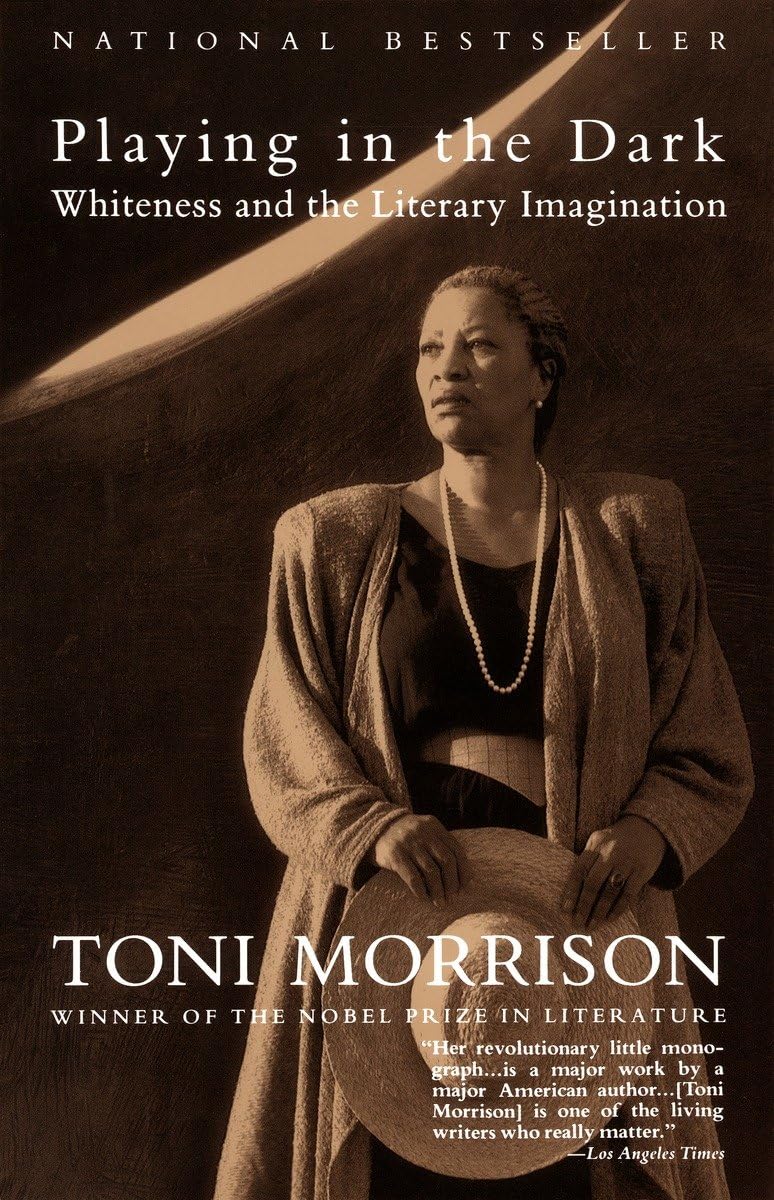

Playing in the Dark: Whiteness and the Literary Imagination
P**N
A Brilliant Old Friend Turns on Yet Another Lightbulb in my Head
I was extremely fortunate to meet Toni Morrison some twenty years through Dr. Jonathan Lovell as we three were involved with the National Writing Project in San Jose, California. She always had something to say. She focused on attention on that "something" and not on herself, even though she was a well known writer who had received many high awards.You had to love her novels. To read them was to live them.The first of her nonfiction I have read is her recent Playing in the Dark. Her analysis, her perspective, her depth of thinking is what I would expect from her - brilliant. To read it is to learn.We used to exchange Christmas cards; but my many moves have now precluded that. So, it is good to hear from you again, Toni. Thank you again.- John Gibson
N**D
Considering the Black Gaze
Love this analysis of American Literature. Morrison expertly breaks down American Literary classics and obscure texts to reveal the presence of the "other" which she calls American Africanism. Her claim is that this presence is apparent in most if not all American literature regardless of whether there are raced characters or not. She provides a lens for examining American Literature that renders the texts more complex and more relevant for further study. Personally, I find her reading of Huck Finn alone is worth makes this text exemplary.
J**S
eye opening
Playing in the Dark: whiteness and the Literay Imagination is an eye opneing experience. it allows the reader to understand that those who call themselves Literary scholars, do not understand or see the importance of black,African or African American Literature. It is a dismissal, either intentionally or unintentionally, of writing that is, to those who do reviews, foreign.Playing in the Dark also examines the use of blacks in literay works. it explores how black characters are somewhat a non entity. They are used somewhat as a prop, a filler, though, the story and/or the story line, in many cases could not exist without these characters.the book explores how the authors do not know how to develop these characters because the authors themselves have a preconceived opinion of blacks, therefore it would be almost impossible for them to understand how to utilize these characters in a way that enriches their story.
A**R
An important critique of some well-known Caucasian-American authors
As a White American I learned from reading this about how some White authors of the past used Black characters and at times treated them as if they were not worthy of the same respect they would give to White characters. I hope many White Americans will read this book.
D**.
Provocative Ideas
The essays present food for thought and thoughtful argument. As a teacher of demanding literature, I see this work as presenting an intriguing counterweight to Virginia Woolf's A Room of One's Own, another example of this genre, essays based on a series of lectures. Both works epitomize the power of a strong arguable thesis. Toni Morrison's ideas also provide valuable points for discussion of many the works of literature that real American literary literacy demands that we discuss, including Huck Finn. Playing in the Dark provides a vigorous intellectual experience for the reader, teacher, and student.
N**E
Illuminating and thought-provoking
Toni Morrison demonstrates a new and important way to read American literature and think critically about what has been written or not written.
Y**E
Amazing read!
Toni Morrison did nothing short of blow my mind with this book. It’s a short read, but SO MUCH IS SAID that one feels full and completely submerged in her analysis throughout the book. One of the most interesting reads I’ve come across in a long time. Highly recommend, not only for supporters and admirers of Toni, but anyone interested in the unspoken complexities of American Literature and the dynamics of American culture in a historical context.
G**N
Another masterpiece from Toni Morrison
I am not a fan of literary criticism, but this book puts things in perspective for me and makes what we see as ordinary extraordinary and highlights. Her concept of what she calls "American Africanism" is fascinating. I would say it is like Edward Said's Orientalism but about African American studies.
TrustPilot
1天前
1 个月前